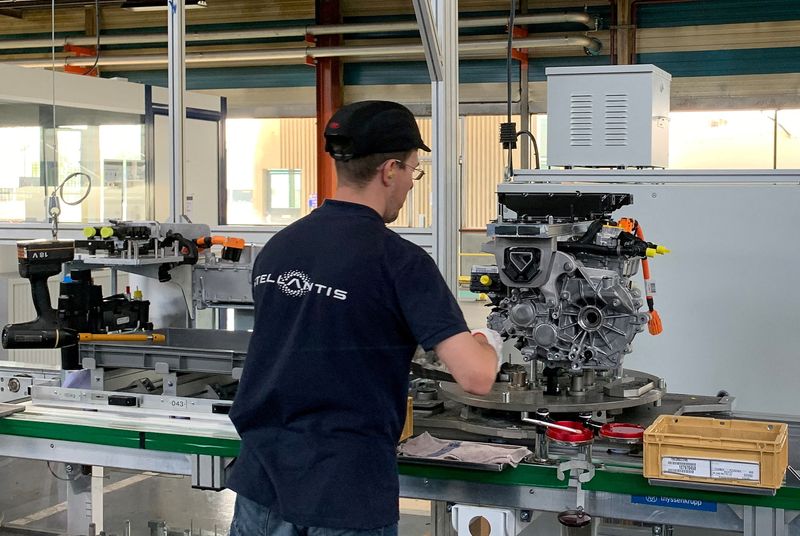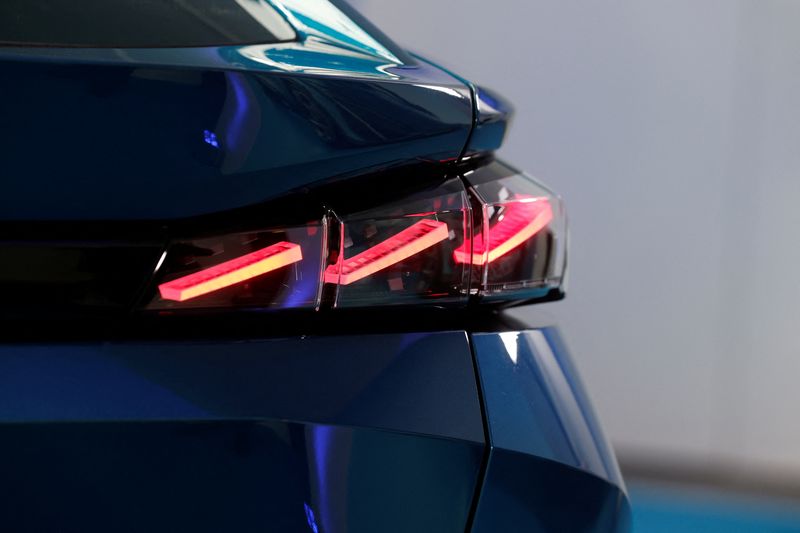PARIS (Reuters) - Stellantis (NYSE:STLA) announced on Friday that it is investing in French sodium-ion battery startup Tiamat to diversify its portfolio and mass-produce electric vehicles while reducing exposure to scarce resources.
The exact amount of the investment, which is part of an initial fundraising of 150 million euros from Tiamat, was not disclosed.
The funds will be used in part for the construction of a battery factory in northern France, Tiamat Chief Executive Herve Beuffe told journalists.
This site, the fifth so-called gigafactory for the electric vehicle supply chain in the region, should have an initial capacity of 0.7 gigawatt-hours by 2026, which could be increased to 5 GWh by 2029, he added.
Born out of France's state institute for scientific research CNRS in 2017, Tiamat claims it can produce competitive batteries without lithium, a metal highly sought after due to the global electrification boom, which it replaces with far more abundant sodium.
Its batteries, which are cheaper but also offer less mileage, will be suited to small vehicles. Their reduced reach can be compensated for by faster charging capacity, Tiamat says.

"Exploring new options for more sustainable and affordable
batteries that use widely available raw materials is a key part of our ambitions of the Dare Forward 2030 strategic plan that will see us reach carbon net zero by 2038," said Ned Curic, Director of Engineering and Technology at Stellantis.
